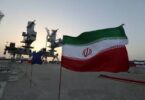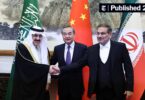Minister for Interior, Planning and Development, Ahsan Iqbal urged holding of early meetings of CEPEC Joint Working Groups during his discussion with Ning Jizje Vice Chairman of China’s National Development Reforms Committee (NDRC) in Beijing. He disclosed the work on CPEC projects has seen positive progress over the last five years, ignoring the fact that it kick- started after the visit Chinese President when PTI sit-n in Islamabad ended in 2015. He said that Pakistan has achieved the highest GDP growth rate 5.8 percent in the last 12 years, concealing the bare fact that it is mainly expenditure led.
The economic growth rate of 7 percent plus during 2001-07 was computed on both income and expenditure methods with the application of inventory valuation adjustments to avoid over-estimation and underestimation and work out the almost exact figure of GDP growth. No such standard procedure is being applied in the present government.
The Minister claimed that energy crisis in the country is over now and coal fired thermal power projects of Sahiwal and Port Qasim have been made operational. Power outages of six hours in cities and suspension of power supply for 22 hours in villages is a glaring indication that energy crisis is far from over. These two thermal power projects are still under completion. No data of their being operational is available either on the website of power division or on that of Planning Commission. The projects are still under completion. He proposed the meetings of PaK-China Joint Working Groups next month to fast track approval of projects in infrastructure and energy. He particularly emphasized the early approval Khuzdar-basima and D.IKhan-Zhob-Quetta highways. It was the Ministry Planning that denied the media reports that certain road projects under CPEC framework have hit snags. Construction work on Khuzdar-Shadad Kot road is going on with snail pace. These highways are main arteries of CEPEC.
Planning Minister opined that in the wake of emerging fourth industrial revolution the cooperation in the field of digital economy is must and proposed to establish a new working group for this purpose. Over the past 18 years successive government deferred the documentation of the economy because of political expediency what to speak of its digitalization. World Bank and International Monetary Fund are persistently emphasizing that Federal Bureau of Revenue (FBR) should utilize the IT data of 3.8 million wealthy people for broadening the tax base. But the federal government has marched in the opposite direction and eroded 50 percent of existing narrow tax base with the tax amnesty scheme in which the limit of taxable income has been raised to Rs. 1.2 million.
The technological base of Pakistan is stuck at second generation technology in civilian goods industries. It can open its doors for the emerging fourth industrial revolution by successfully introducing and indigenizing the fifth generation technology. This herculean task can not be done within the next few years. That is why the Chinese do not seem that much enthusiastic in the relocation of their industries to the proposed Special Economic Zones (SEZs) and entering into joint ventures with Pakistani entrepreneurs. The list of concessions demanded by China on 75 percent tariff lines in the revised Free Trade Agreement Phase-II gives credence to perception that the country is for away from the advent of fourth industrial revolution.
The Chinese appreciated the idea of holding the meetings of Joint Working groups in principle but did not give a firm date in the next month as was desired by Pakistan. It was decided that cooperation in agriculture sector would be extended in the light of CPEP long term plan. The government is not willing to submit the CEPEC long term plan in the parliament and its Nitti Gritty have been kept secrete. Cooperation between China and Pakistan in agriculture sector would not be fruitful if the Chinese are shy in financing the big dam storages. Chairman WAPDA had to inform the Senate Standing Committee on Water and Power that the project of Diyamer Basha dam had been withdrawn from CPEC framework because conditions for its financing were unacceptable of their being against the national interest. The Chinese leadership and their mercantile class are wise enough. They will adopt a policy of wait and see till the holding of upcoming general elections and formation of new government in Pakistan.






